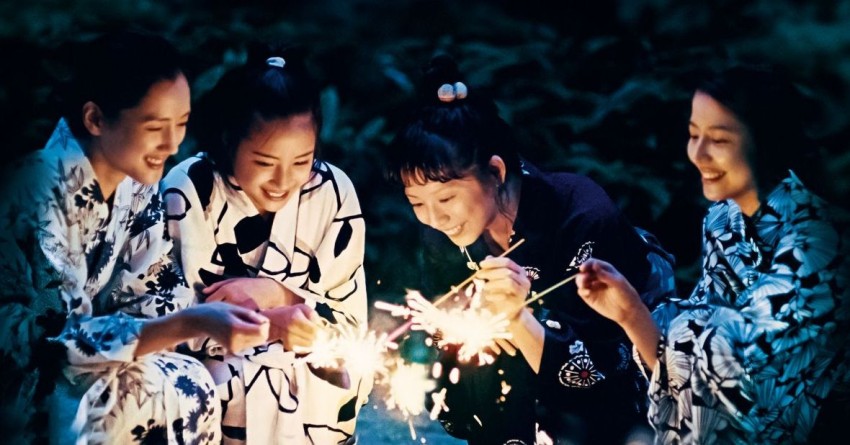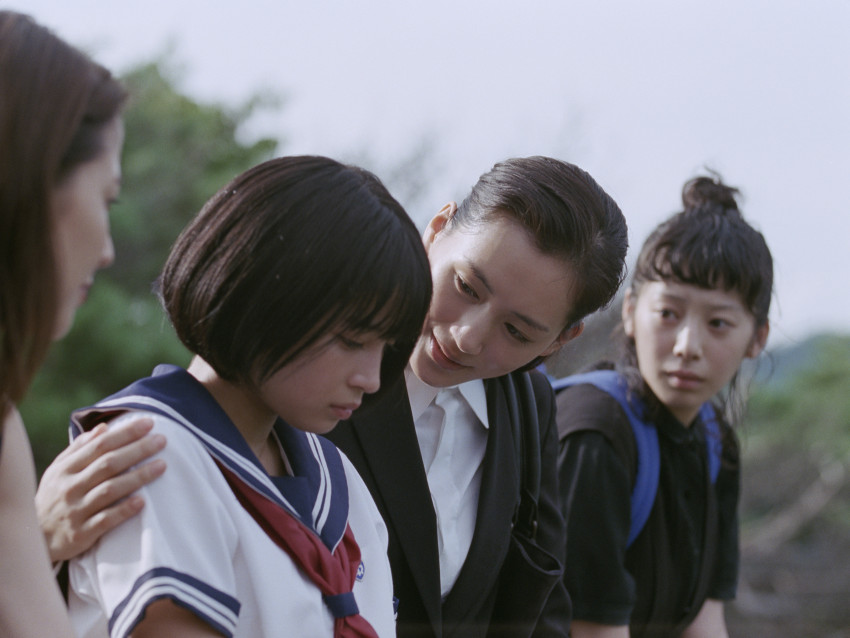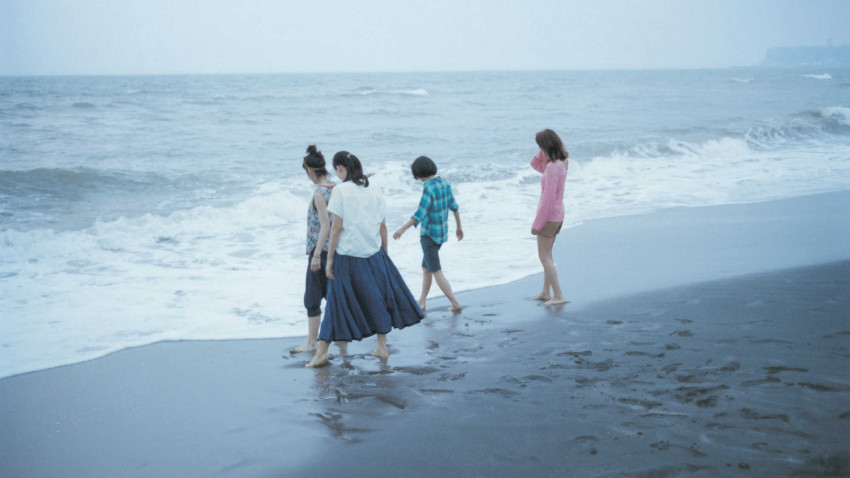Our Little Sister
November 17, 2016 · 0 comments
By Roxy Simons.
 Let it not be said that Hirokazu Koreeda doesn’t know a thing or two about creating emotional family dramas. It’s a topic he has been fixated with for over 20 years and is a genre that he has proven time and time again to be the master of, and his latest project Our Little Sister continues this trend.
Let it not be said that Hirokazu Koreeda doesn’t know a thing or two about creating emotional family dramas. It’s a topic he has been fixated with for over 20 years and is a genre that he has proven time and time again to be the master of, and his latest project Our Little Sister continues this trend.
Based on Akimi Yoshida’s manga Umimachi Diary (Seaside Town Diary), the film focuses on four siblings – three sisters and one step-sister – coming to terms with their father’s absence from their lives. For Sachi, Yoshino and Chika it is their father’s abandonment of them as children to marry another woman that they struggle with, while for 16-year-old Suzu it is his untimely death and her own feeling of guilt towards her step-sisters.
When Sachi decides to take in Suzu at their father’s funeral, things begin to look up, and the film follows the quartet on their new life together as they go on a journey of forgiveness and acceptance. It is one of Koreeda’s more uplifting projects, and stands out from his back catalogue for its new approach to the characters.
 “I wasn’t concentrating on making these four characters’ victims of abandonment,” Koreeda explains. “I was more interested in how the three sisters were able to fill the void left by their father by taking in their step-sister Suzu, rather than being victimised like other characters I have had in my films.”
“I wasn’t concentrating on making these four characters’ victims of abandonment,” Koreeda explains. “I was more interested in how the three sisters were able to fill the void left by their father by taking in their step-sister Suzu, rather than being victimised like other characters I have had in my films.”
“I see it as a story of acceptance. The eldest sister, Sachi, has such a negative impression of her father, but by accepting the younger sister into her life she is able to change the memories and negative impression she had of him.”
“While the youngest sister, Suzu, felt very bad about her own existence because she believed she had hurt her siblings by being born. In the story her own negativity changes and she grows to accept herself, I was very attracted to that notion.”
Perhaps its Koreeda’s own childhood, spent trying to come to terms with his own father’s absence, that influenced his interest in family dramas, and what steered the focus of this project: “My own father was left behind after the war, and had to work in Siberia before he was allowed to return to Japan. I think I have always been interested in lost people, or those who are forgotten, because of this.”
“It was only when I became a father myself that I started to forgive him and understand his viewpoint, and I wanted to show that in this film.”
The original manga tells the story in the form of diary entries from the point of view of the sisters and their network of supporters. But in Koreeda’s film the focus remains firmly on the siblings, a factor that was key in presenting its underlying message: “my viewpoint as a director was that of the deceased father.”
 “He doesn’t appear in the film but I tried to look at each scene from his point of view, to express how he would be looking over his daughters. His presence is shown through food, and the children’s associations and memory of him through it. For me, the existence of absent characters is very important in this film because it’s crucial to show their presence in the character’s lives.”
“He doesn’t appear in the film but I tried to look at each scene from his point of view, to express how he would be looking over his daughters. His presence is shown through food, and the children’s associations and memory of him through it. For me, the existence of absent characters is very important in this film because it’s crucial to show their presence in the character’s lives.”
Another crucial part of making a great film was to select the perfect cast, and for Koreeda he was able to do just that. The two actresses he was particularly pleased with choosing, though, were Haruka Ayase and Suzu Hirose, who play Sachi and Suzu respectively.
The former is a well-established actress and singer, and is known for her comedic roles. Despite her reputation as a comedy actress, though, Koreeda knew she would suit the character the moment he met her: “It was not my original intention to cast her in the role of Sachi, since she is known for her goofy roles in Japan. But her manager wanted me to meet her completely separate from this film, so I did. My very first impression of her was different to how I’d seen on television: she had this classical, almost old-fashioned, look to her and she was, and still is, a very beautiful and strong lady.”
“She isn’t at all what she’s like on screen, and I knew then that I wanted to cast her. Many people said this role wouldn’t suit her, but in the end I think she turned out to be wonderful in the film.”
Choosing Suzu Hirose, meanwhile, was an entirely different story. Having only starred in a few films and television shows before, she was selected after going through a normal audition process. But even in these early stages she proved to be an asset to the film, working tirelessly to provide the best performance she could, and this effort did not go unnoticed: “In the auditions I thought she was very versatile. She could act out a scene with the script or without, and I could also explain a situation to her and she would work well off of that.
“I normally work without scripts for child actors because I prefer to describe the film to them so that they understand it through sounds rather than from reading it, and I think she wanted to make the most of this opportunity.”
“She worked on the set from moment to moment, using my instructions as a base. She wasn’t quite a child but also not a grown-up yet so she was actually quite delicate, and I think this made her performance much more natural.”
This certainly seems to be the case since her interactions with her siblings are particularly moving in the film, and it is in these moments that their growth is the most prominent. What’s clearest from the film, though, is that Koreeda has once again produced a brilliant family drama.
Our Little Sister is out on DVD and Blu-ray now.
Leave a Reply